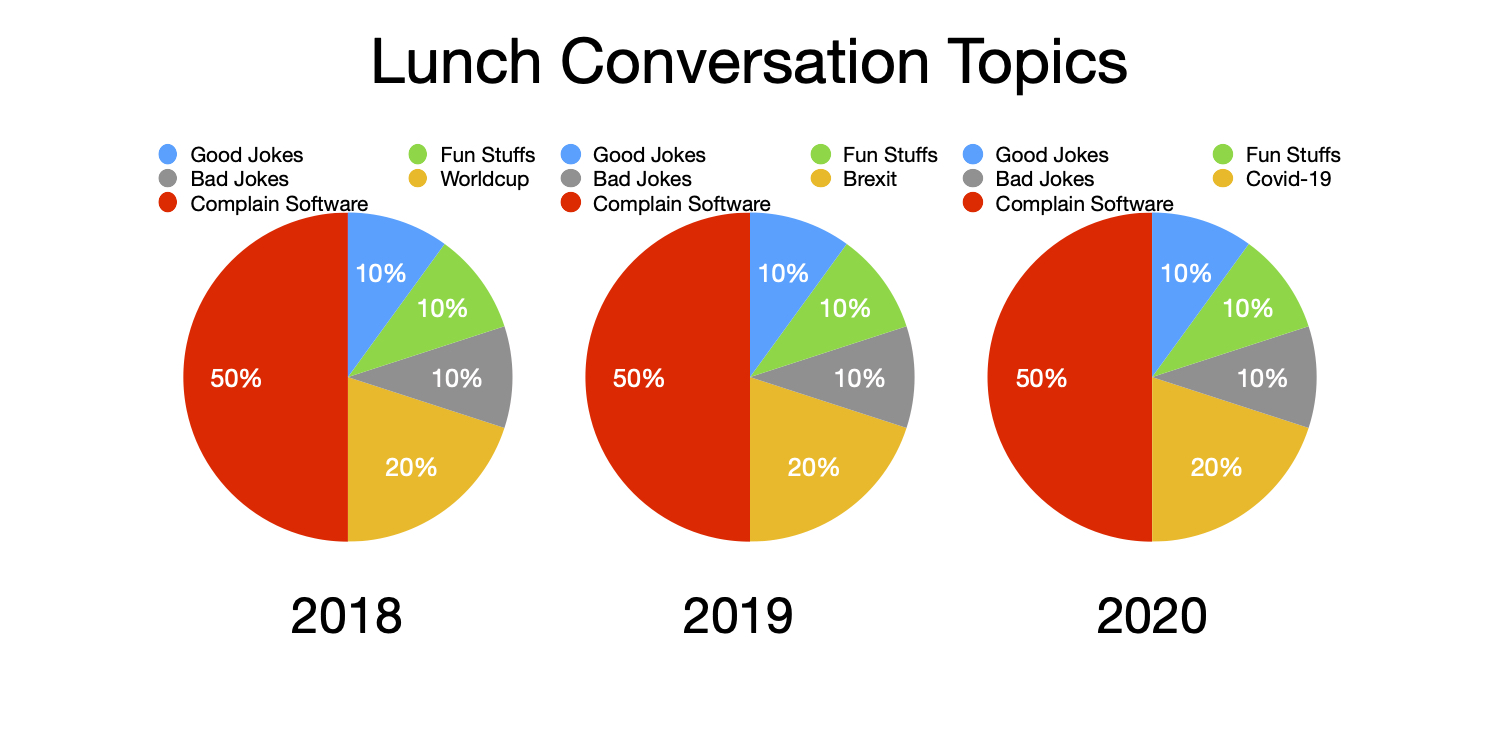Introduction
Overview
Teaching: 5 min
Exercises: 0 minQuestions
What kind of code should we (not) write?
Objectives
How to make the software packages written by us more accessible by our colleagues.
What is a programming language?
“Programs must be written for people to read, and only incidentally for machines to execute.”
-Abelson & Sussman, Structure and Interpretation of Computer Programs1
We work in a large collaboration so that we read/use each other’s codes very often. Sadly but truly discussing coding is part of our lives (at least mine). No matter what is going on in this world, we talk (complain) about software often. Again at least for me:

Ok that is a bit exaggerated but software is indeed important for us. We gathered feedback from many people and extracted several simple axioms. It is interesting that we all have agreed on those simple things despite various backgrounds. In this mini section we are not gonna tell you everything you need to know about writing elegant codes but rather share our experience working with software in ATLAS. Hopefully in the end we could convince you that it is worth thinking about this.
Why care about good code?
We are busy people with dozens of things to pay attention to in our work. Why should we put in additional effort to produce quality code? Why not just settle with code that works?
Focusing on quality code is actually one of the best ways to save you and your team tremendous amounts of time in the future. Clean and elegant code is much easier to understand, maintain, and extend.
Code quality is a broad measure of how useful code is. This obviously includes whether or not the code behaves as it’s intended to, but also includes non-functional aspects such as robustness or maintainability. Whether or not a piece of code is high-quality can depend on the industry or team it’s written for, and is often subjective even within that team. As we gather our collective experience as developers however, we can define some broad code quality goals that are useful as guiding principles.
Code quality goals2
These are a sample of typical code quality goals one might adhere to. These are not exhaustive, but rarely should you write software without keeping these goals in mind.
-
Readability, consistency — how easy it is to read and understand sections of the code; this includes code clarity, simplicity, and documentation.
-
Predictability, reliability, and robustness — software behavior should be predictable, and not prone to hidden bugs.
-
Maintainability and extensibility — fixing, updating and improving software should be as simple as possible, not inherently complex.
What other goals?
Can you think of other non-functional code quality goals that might not be included in this list?
Examples
Security is often another goal that we don’t often encounter in ATLAS analysis.
Efficiency is another goal that is more important in some cases than others.
This lesson will introduce practices and habits that will help you achieve these goals. Some techniques are good for software development in general, and some are specific to the coding we do in ATLAS.
Key Points
We are not professional software engineers but software is important.
Our code is very likely to be shared with our colleagues.